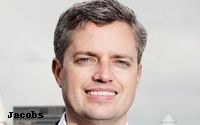Commentary
Real-Time With AOL's Dave Jacobs, Marking The 15th Anniversary Of Ad.com
- by Joe Mandese @mp_joemandese, October 18, 2013

In what could be described as the programmatic audience-buying marketplace’s Big Bang moment, a team of young Internet entrepreneurs led by Scott and John Ferber set out 15
years ago to organize the rapidly expanding universe of unsold audience impressions for advertisers. Their baby, Advertising.com proved to be the first scalable and sustainable online advertising
network, and paved the way for an explosion of ad tech players -- exchanges, DSPs, DMPs, and trading desks -- that have created the modern day programmatic marketplace.
On the eve of that
anniversary, one RTM Daily asked Dave Jacobs, senior vice president-publisher services of AOL Networks (which acquired it in 2004), and one of Advertising.com’s oldest remaining employees, to
reflect on how far the business has come, and where it may be heading next.
RTM Daily: For all intent and purposes, you guys started to organize the “non-premium” marketplace and were the precursors of “audience-buying” long before exchanges, DSPs and agency trading desks. Did you have any idea that it would explode into its own ecosystem, with all these technological variants, the way it has today?
Dave Jacobs: We always believed that an ecosystem based on accountable metrics would serve both the buy-side and the sell-side well. We focused on those variables which drove results for marketers and ultimately benefitted publishers with whom we partnered. The exchange and platform ecosystem is a natural evolution of the “early” traditional network model. The key is offering differentiated results along the way, aggregation of supply isn't a unique value proposition in the way it was seven or even three years ago.
RTMD: Do you think all the action in the middle-man infrastructure optimized by Lumascape has been good for the audience-buying marketplace by drawing attention to it, or has it been a net negative that confuses and turns off a lot of potential advertisers and agencies?
Jacobs: Net net, we believe that by making more technology available to marketers and publishers, that this is a benefit. Without question though the current "scape" is very confusing to advertisers and agencies, and causes a lot of drama and attention. We believe over time the true companies who are adding value will succeed, and others will integrate/plug into features.
RTMD: AOL is doing its fair share to tamp down the noise, declutter and provide simple solutions, but with no barrier to entry, is there any way you can make a dent in this ever expanding marketplace of suppliers?
Jacobs: Absolutely, we are seeing great growth in our platform offerings both on the demand-side and the supply-side. Customers want simple, efficient solutions and we make that attainable. The market is driving compression much more than any single company could and what we today know to be companies are starting to look more like features that should plug into end-to-end platforms like ours.
RTMD: Does your relative share become more or less valuable as me-toos join the fray?
Jacobs: We believe that there will only be a handful of platforms that brands and publishers plug into, and we are confident that we will remain one of, if not the, leader.
RTMD: What have been the biggest changes in your core product since you’ve integrated with the rest of AOL Networks infrastructure? How are you different than a plain vanilla advertising network?
Jacobs: I’d have to say programmatic. Extending our deep roots in premium and driving both brand and publisher results in an automated way has been such a powerful force for us.
RTMD: Some people predicted ad nets would go away with the advent of exchange-based audience-buying, but that hasn¹t been the case. Why?
Jacobs: I can’t speak to any other business, but with us we have always been committed to premium – whether it’s inventory or formats. I really believe that’s been an insulating differentiator for us.
RTMD: What do you think the audience-buying marketplace will look like 15 years from now?
Jacobs: Automation will prevail and we will no longer distinguish between media and screens.



